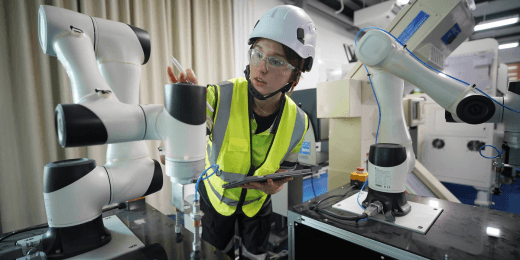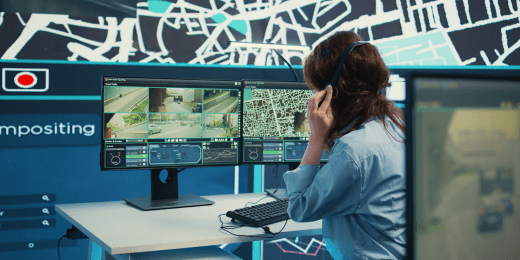A Comprehensive Guide to Office Management
Learn all about office management and the best practices for effectively managing your workspace.

Published 31 May 2024
Article by
4 min read
What is Office Management?
Office management refers to the coordination and oversight of the day-to-day operations in any workplace. Managing an office entails various tasks, such as organizing resources, managing staff, and implementing systems to streamline workflows. This is done to ensure the workplace promotes a healthy and conducive working environment, thus increasing the overall efficiency and productivity of operations, helping organizations achieve their goals.
Importance
A successful, efficient, and productive office is one that is managed properly. Organizations looking to boost productivity must look at the different ways they can effectively manage the operations in their workplace from top to bottom. These practices are essential in maintaining a balanced workplace, while also ensuring that everyone is safely doing their job at the right pace. Below are a few more reasons why office management is crucial:
Streamlining Workflows
The main reason office management is an important aspect of operations is that it streamlines workflows. When managers plan processes and have a bird’s eye view of how certain tasks are performed, it will be easier to spot areas of inefficiency and non-productivity.
On top of that, efficient office management allows managers to establish better workflows that get the job done quicker without compromising quality. This is critical when working toward organizational goals.
Enhanced Communication
Another major benefit of efficient office management is that it enhances workplace communication. Using the right communication strategies fit for your organization is critical for ensuring smooth operations. Office management allows managers to establish clear and efficient lines of communication between workers and teams, allowing for easier collaboration.
Organizational Effectiveness
At the end of the day, a well-managed workplace is always more effective than a poorly managed one. Taking the time and putting in the effort to manage an office allows workers to be more efficient at their jobs. This is because tasks are more organized and delegated to the right people, ensuring workers are aware of their individual responsibilities, roles, and duties.
Achieve operational excellence
Cultivate a culture of excellence with our digital solutions that enhance efficiency, agility, and continuous improvement across all operations.
Best Practices for Office Management
Each workplace has its own approach to office management. Thus, it’s important to adjust the management style to the needs of the office, workers, and more. This way, you can manage the office in the most efficient way possible.
That said, there are a few best practices for office management to keep in mind that will make you a more efficient office manager, such as the following:
Establish a Clear Communication Channel
The key to managing a workplace efficiently is ensuring that everyone has a way to communicate with each other. An efficient office always has a clear and effective communication channel in place, accessible by all. This is often enhanced with support from workplace communication software, dedicated telephone lines, and more.
The most important thing is that the entire team is on board with using the communication channel, and they understand how it works. This way, they can communicate with each other regarding tasks, certain practices, schedules, and more, anytime and anywhere.
Delegate Tasks Clearly
It’s common for workers to get confused about which tasks they need to accomplish and the specific way they should accomplish it. For this reason, it’s important for managers to clearly communicate which workers are responsible for certain tasks when they should execute the tasks, and the best approach to doing this.
Task delegation can be streamlined with open meetings, as well as a dedicated software. Using a digital tool that can be easily accessed anytime ensures all employees are kept in the loop at all times, keeping them aware of their respective duties in promoting an efficient and operational workplace.
Consistent Evaluations
A good manager consistently checks on the performance of their workplace. It’s essential for managers to evaluate how well the workplace is performing. Through regular and consistent evaluations, managers can easily find areas of improvement and make informed decisions on the best way to optimize workflows.
Manage Time
Time is gold in the workplace, which is why time management is essential when optimizing office processes. This means getting everyone on a specific schedule that gives everyone enough time to finish tasks properly.
Integrate New Technology
Adopting new technology to enhance the management process is one of the most important things for managers to remember. This is because software and technology designed for office management doesn’t just make the job easier, but it allows managers to perform their job better and more efficiently. When integrating new technology, you reduce the chances of human error, which can be costly when managing large workplaces.
Manage Your Office with SafetyCulture
Why use SafetyCulture?
SafetyCulture is a mobile-first operations platform adopted across industries such as manufacturing, mining, construction, retail, and hospitality. It’s designed to equip leaders and working teams with the knowledge and tools to do their best work—to the safest and highest standard.
Streamline processes, eliminate bottlenecks, enhance resource utilization, and build an agile and scalable infrastructure with SafetyCulture. Strive for operational excellence to boost competitive advantage, foster sustainable growth, and deliver long-term value.
✓ Save time and reduce costs ✓ Stay on top of risks and incidents ✓ Boost productivity and efficiency ✓ Enhance communication and collaboration ✓ Discover improvement opportunities ✓ Make data-driven business decisions
FAQs about Office Management
Related articles
Operations
Business Processes

Understanding the Importance of Process Automation Reliability
Learn how reliable process automation is key to safe, consistent operations and how it minimizes quality and compliance risks.
Logistics
Operations

Transportation and Logistics: What’s the Difference?
Learn about the importance of transport and logistics within the supply chain and how it is used in business operations.
Logistics
Operations

An Overview of Transport Network Analysis
Learn about transport network analysis and how network-level insight improves reliability and reduces operational risk.